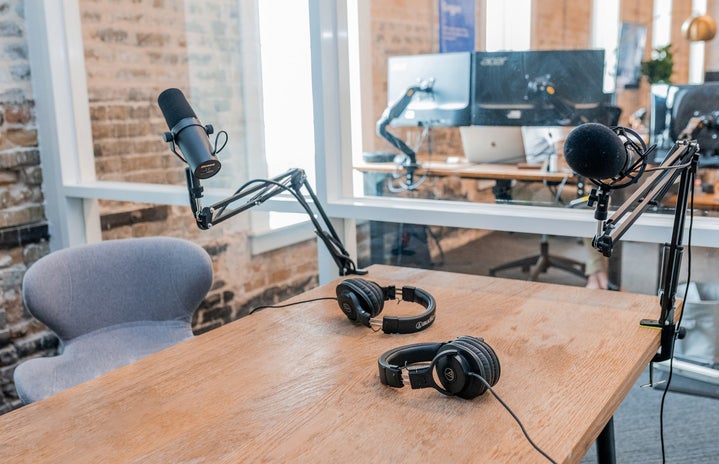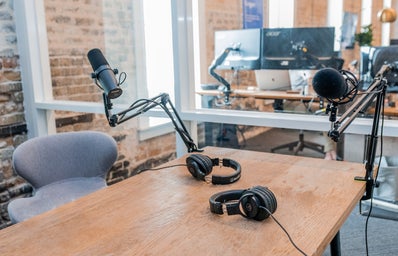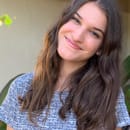Robert Yoon, a Howard R. Marsh Visiting Professor at the University of Michigan, teaches courses about politics and journalism. He has covered five presidential campaign cycles as a political journalist and worked as CNN’s Director of Political Research for almost 20 years. Two Emmy Awards, five total Emmy nominations, a Peabody Award, and two National Headliner Awards are among some of his achievements.
Lucky for me, he is also my Communications 306 professor.
It’s an extraordinarily remarkable thing that I get to spend my Tuesday and Thursday mornings sipping a cup of coffee while listening to a lecture from Robert Yoon. I am perched at my desk by 8:30 am on these mornings, ready to listen and take notes. Before each class, I feel excited to learn about politics. Professor Yoon has the inspiring capability of explaining presidential campaigns, and politics as a whole, in a way that matters to each and every student in his class. Therefore, I decided to share his knowledge with the world and ask him some questions. Our conversation is recorded below.
- What aspects of your upbringing inspired you to pursue politics?
-
I was always interested in politics as a kid. In elementary school, I would read about the presidential campaign and be really interested in Election Nights. The idea of coloring in the states seemed really fun and exciting. I have a drawing I made in the second grade of Ronald Reagan’s Election Night victory speech. When I was a little older, I would watch the State of the Union and name the cabinet secretaries as they entered the House chamber. I don’t know why. Maybe it had to do with growing up in the Washington, DC area. Looking back, I probably should have spent more time outside.
- What was the most exciting thing that you did while at CNN?
-
Election Nights were always exciting, not just because I love politics and would follow the results anyway but also because modern election cycles are very long and grueling and Election Night usually meant that I’d be able to get some sleep soon. The most challenging thing I worked on was the presidential debates, and I did more than 30 of them. That’s a rare and unique opportunity for a journalist, but I was usually too focused and stressed out at the time to realize how exciting they were to work on.
- What inspired you to be a visiting professor at the University of Michigan?
-
I never had any plans to go into teaching, but the timing of the visiting professorship worked out perfectly. I was already on campus doing an eight-month journalism fellowship when I heard about the teaching position a week before the application deadline. The fact that the position started just before the 2018 midterm elections was an added bonus, because it meant that I could incorporate that and the early stages of the 2020 presidential campaign cycle into my courses and use them as real-world teaching tools. Not covering the election from my usual seat at CNN was a big adjustment but getting to teach these classes and interact with students who are also interested in politics and the media helps me get my political fix.
- What aspect of the 2020 Election do you find to be the most important?
-
The 2020 election has exposed how fragile democracy actually is, even in a place with a long and established democratic tradition like the United States. I’ve covered the intricacies of elections for 20 years now, and I’ll be the first to say that there’s a lot that needs to be addressed and fixed about how elections are run in this country. But the attempts to undermine and de-legitimize the electoral process itself should be of great concern to every American.
- When becoming a U.S. Voter, how important do you think it is to register with a political party?
-
The concept of party affiliation is somewhat misunderstood. It’s more of how you think of yourself rather than what you mark on an official piece of paper at an elections office somewhere. In almost half of the states, voters don’t even have the option of registering with a political party. In the states that do give you the option, the main advantage of registering with a specific party is getting to have a say in picking that party’s nominees for various offices. Other than that, it’s more of a rhetorical statement you’re making to the world that you’re a Democrat or a Republican or a Libertarian or an independent, and you have the paperwork to prove it. But what’s more important than that piece of paper are your personal beliefs and priorities and how that’s going to affect your voting behavior.
- If you could have dinner with one presidential candidate, present or past, who would it be?
-
In college, I tried to write a paper on Shirley Chisolm’s 1972 presidential campaign, but eventually I had to change topics when I couldn’t find enough reference material in our pre-Internet library. If we had dinner, then I could finally write that paper. These days, there’s renewed interest in her and her campaign, I think in part because of Kamala Harris’ candidacy. She was played by Uzo Aduba in a recent TV mini-series and will be played by Danai Gurira in an upcoming film. I’m glad new audiences will learn about her. She was a fascinating political figure.
- Do you have any advice for college students struggling to figure out how to spend their summers?
-
Summers are a great opportunity to get yourself on the right track for your career, or sometimes to help keep you off the wrong track. My advice on how to plan your summers is to be creative and honest with yourself about what you want to do and not to be afraid of rejection. Whether you’re interested in fashion or sports or news or public service, brainstorm a long list of organizations you know of in those fields and check their websites and find out about their internship or job opportunities. If you’re interested in social media or marketing or video production, think creatively about the kind of companies that might need those services and see what they have available. Cast a wide net. You might get a lot of rejections or non-responses, but I think just going through the process several times can make you a sharper applicant when it really counts.
- What is something that most people don’t know about you?
-
I was Homecoming King in high school, which I find kind of funny because I don’t really fit the profile you usually see in movies or TV shows. As far as I can tell, it wasn’t a prank. No one poured a bucket of pig’s blood on me at the dance or anything like that. I guess people just thought I would be a benevolent ruler.
Professor Robert Yoon, thank you for sharing your thoughts with me and, subsequently, the readers here at Her Campus!


